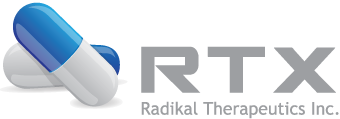WEST TISBURY, Massachusetts – January 01, 2014
Radikal Therapeutics today announced that the Company has been joined by Dr. C. Edwin Garner, Ph.D. who will be responsible for the design and conduct of research programs investigating the disposition metabolism and elimination and PK of xenobiotics in mammalian systems and the assessment of the impact of PK/ADME on pharmacological and toxicological endpoints. Dr. Garner has significant experience in the use of radioisotope and stable isotope techniques to investigate biotransformation of small molecules. He specializes in the study of incorporation of small molecules into intermediate metabolic pathways and the impact on changes in endogenous metabolism as a mechanism of toxicity. Dr. Garner has over 20 years of experience in PK and metabolism, having published numerous publications in biotransformation, mechanistic toxicology, pharmacokinetics and toxicokinetics of small molecules, human pharmacokinetic estimation, pharmacodynamics modeling, transporter interaction studies, and enzyme induction. Overall, he has authored more than 50 study reports to support development of drug candidates. His previous tenure with three major pharmaceutical companies included direction of DMPK support in preclinical drug discovery and development projects, predominantly in anticancer, anti-inflammatory, and anti-infective compounds. In support of development projects, he has designed toxicology protocols and predicted therapeutic clinical doses from preclinical animal PK data. He also has experience in determining maximum tolerated dose (MTD), exposure margins, no-observed-effects-levels (NOELs), and the toxicologic dose selection in rodents, dogs, and non-human primates. He developed logistic regression models to relate pathology findings to TK parameters and was invited to present this work in the opening lecture of the FDA Drug Development Workshop in Washington D.C in 2002. Previously, he led a group of scientists responsible for in vivo pharmacokinetics; physiologically-based pharmacokinetic modeling; pharmacodynamic models and clinical dose estimations; and efficacious regimen design of anticancer and antibacterial pharmaceuticals. His individual research was oriented towards development of PK/PD models to guide Phase I/II dose and regimen for several anticancer programs, including inhibitors of the TRK pathway. In support of drug discovery, he has coordinated cross-discipline assays for in vitro transporter activity, physical/chemical properties, protein binding, in vitro metabolic stability, CYP inhibition/induction, P450 reaction phenotyping, metabolite ID, and reactive metabolite assays in addition to in vivo pharmacokinetics and tissue distribution studies in rodents, dogs, and non-human primates.
